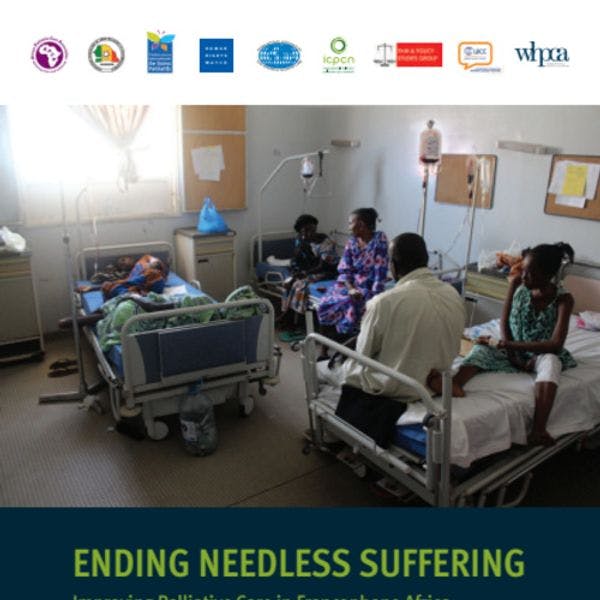Ending needless suffering in Francophone Africa
As people live longer, healthcare systems face an important challenge: caring for more and more people who suffer from pain, shortness of breath, nausea, anxiety, and depression because of advanced chronic illnesses. If not treated adequately, these symptoms can destroy the quality of life for patients and families alike. Our research has found that people with untreated severe pain often describe it in the same terms as victims of torture—so intense that they would do anything to make it stop.
The good news is most symptoms can be controlled through palliative care, which focuses on improving the quality of life for people with life-limiting illnesses. The bad news is it’s not widely available. According to a 2012 study almost 100 countries have no or very limited palliative care. The situation is particularly dire in Francophone Africa, which, if its leaders do not act, risks falling ever farther behind Anglophone African countries where significant progress is being made.
Each year, an estimated 912,000 people, including 214,000 children, require palliative care in Francophone Africa. These numbers will almost certainly rise significantly as the percentage of people over 65 - the segment of the population most affected by chronic illnesses - is expected to more than double in Francophone Africa by 2050. Yet, the 2012 study found that 16 of 22 Francophone African countries do not have any healthcare providers that offer palliative care. In contrast, all Anglophone African countries except Liberia, Mauritius and Seychelles had at least some palliative care services. Similarly, more than half of Francophone African countries for which data is available use so little morphine, a strong pain killer that is indispensable for pain management, that it is not sufficient to treat 5 percent of people dying in pain from cancer and AIDS patients each year.
In a new brochure, Human Rights Watch and nine other organizations document the challenges and opportunities in Francophone Africa, and call on leaders in the region to step up to ensure that people with that bad fortune of getting an incurable disease do not also have to suffer needlessly from pain and other treatable symptoms.
Keep up-to-date with drug policy developments by subscribing to the IDPC Monthly Alert.
